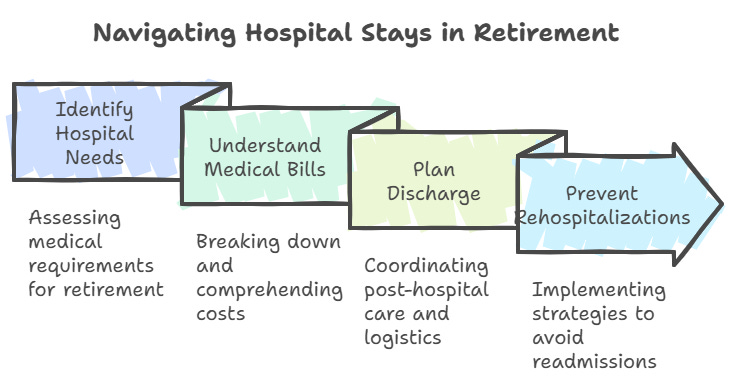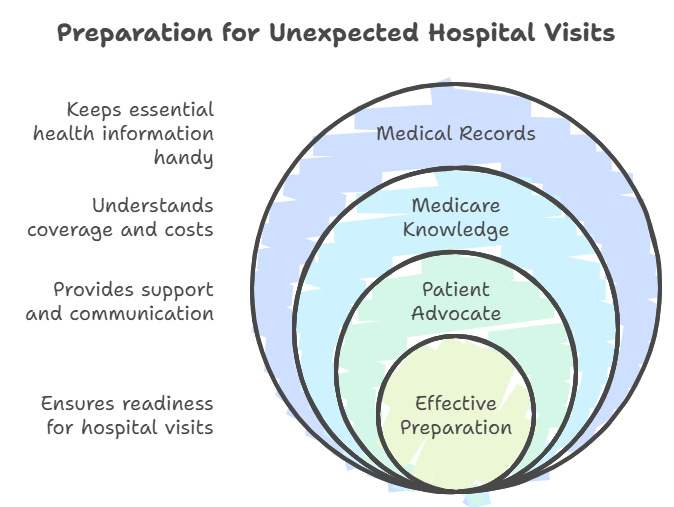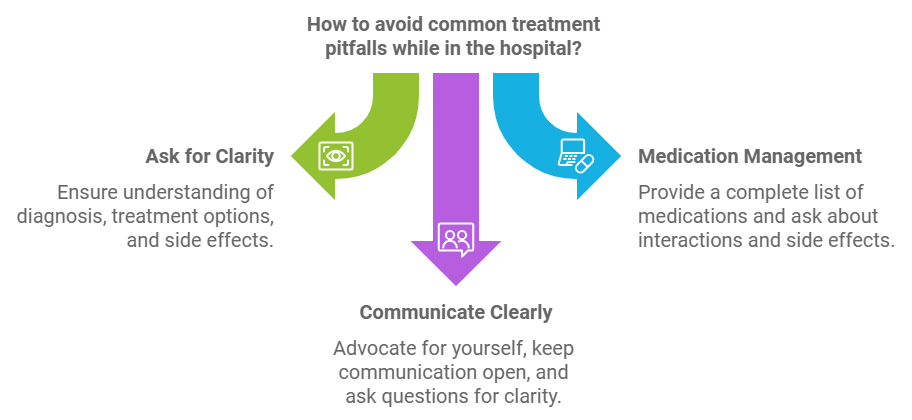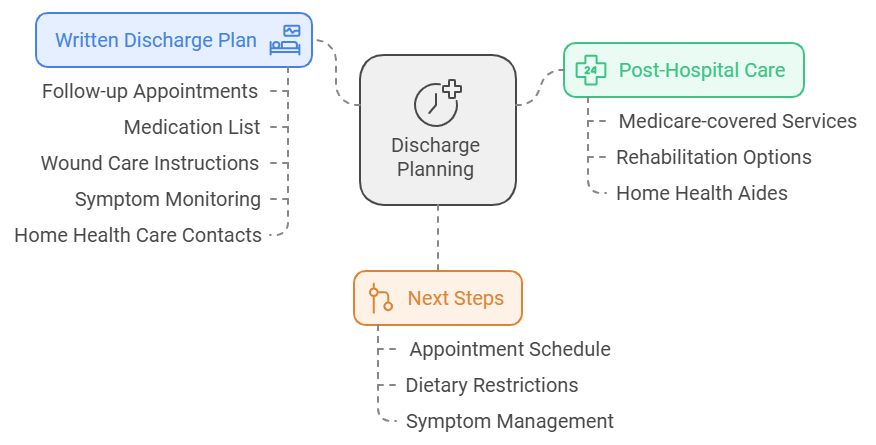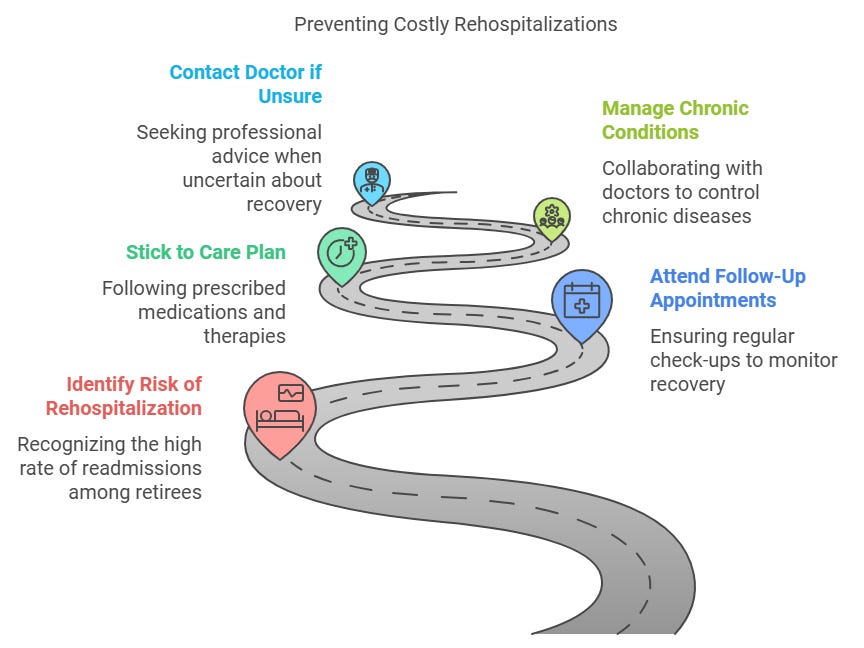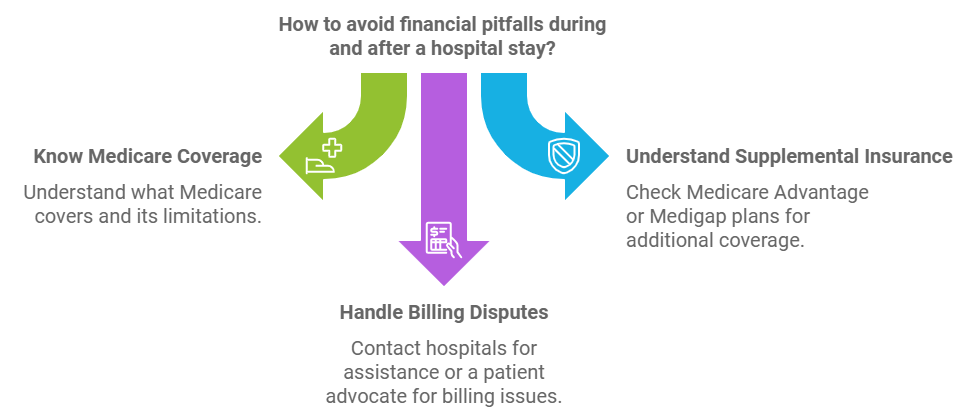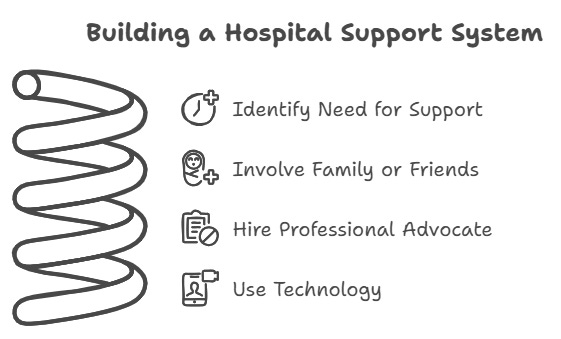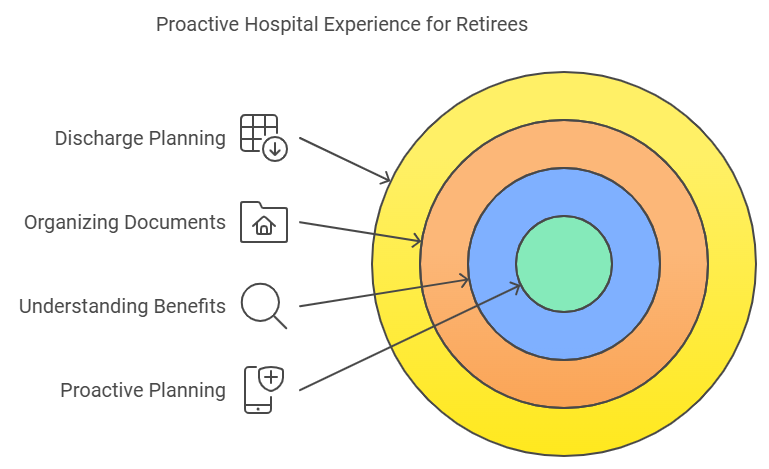Avoiding Hospital Pitfalls in Retirement: A Complete Guide to Safe and Affordable Hospital Stays
Proven Strategies to Avoid Rehospitalizations, Complications, and Surprise Medical Bills
Hospital stays can be overwhelming at any age, but in retirement, they come with unique challenges that often catch seniors off guard. It’s easy to feel lost between confusing billing, understanding discharge plans, and preventing costly rehospitalizations. But with some preparation and knowledge, you can avoid the most common hospital pitfalls in retirement. Let’s walk through everything you need to know to protect your health, finances, and peace of mind.
Q: Why are hospital stays riskier for retirees?
"Stay Prepared, Stay Safe: Navigating Hospital Visits in Retirement"
As we age, hospital stays become more frequent due to chronic conditions, surgeries, or other health complications. According to the National Institute on Aging, older adults are more vulnerable to hospital-related issues such as complications, medication errors, and poor discharge planning. Beyond medical risks, hospital visits can also lead to financial burdens if you’re unfamiliar with how Medicare covers hospital care, what’s out-of-pocket, and what to expect during recovery.
Planning is key to staying safe and financially protected during hospital stays. Let’s break down how to prepare before, during, and after a hospital visit to avoid pitfalls.
Q: What should I do before an unexpected hospital visit?
"Unexpected Hospital Visit? Here’s What to Know Before You Go"
Preparation is the best defense against hospital-related risks, and that starts with organizing essential medical and financial information.
Keep Medical Records Handy: Have a file or digital folder containing your medical history, a current list of medications, allergies, and emergency contacts. This can be invaluable for healthcare providers, especially if you’re unable to communicate clearly in an emergency. You can use apps like OneRecord to keep your records accessible. OneRecord will give you the most access to your medical records no matter what Electronic Medical Records your provider or their Clinic/Hospital uses. We highly recommend it.
Know Your Medicare Coverage: Familiarize yourself with Medicare Part A (which covers hospital stays), Part B (outpatient care), and any Medigap or Medicare Advantage plans you might have. You’ll want to be aware of copays, deductibles, and potential gaps in coverage. For a detailed breakdown of what Medicare covers in the hospital, visit Medicare.gov.
Have a Patient Advocate: If possible, bring a family member or friend who can be your advocate during a hospital stay. They can help communicate with medical staff, ask essential questions, and ensure you’re receiving the care you need. You should even consider hiring one if need be. It is a worthy investment in the most important person you know – YOU!
Q: How can I avoid common treatment pitfalls while in the hospital?
"Take Charge of Your Care: The Questions You Should Always Ask"
Understanding your treatment plan is critical to avoid miscommunication and potential errors.
Ask for Clarity on Diagnosis and Treatment: Don't hesitate to ask questions like:
"What is my exact diagnosis?"
"What are the treatment options?"
"Are there less invasive alternatives?"
"What side effects should I expect from medications?" Asking these questions ensures you’re fully informed about your care and can make decisions based on clear information.
Medication Management: According to the National Institutes of Health (NIH), seniors are particularly vulnerable to medication errors due to polypharmacy (taking multiple medications). Always provide the hospital with a full list of medications, including over-the-counter supplements. Before taking new medications, ask:
“How will this interact with my current meds?”
“Are there any side effects I should monitor?”
Communicate Clearly: Advocate for yourself or through your patient advocate. Keep communication lines open with nurses and doctors, and don’t hesitate to repeat questions if something isn’t clear. The more informed you are, the better your care will be.
Q: What should I know about discharge planning?
"The Road to Recovery Starts Before You Leave the Hospital"
The discharge process is critical to avoiding complications and readmission after leaving the hospital. Unfortunately, discharge planning is often rushed, and important details can slip through the cracks. Here’s how to ensure a smooth transition:
Get a Written Discharge Plan: Ask for a detailed, written discharge plan that includes:
Follow-up appointments with doctors
A clear list of medications, dosages, and times to take them
Instructions for wound care, physical therapy, or any other treatments
Symptoms to watch for that could indicate complications
Contact information for home health care providers, if applicable
Arrange for Post-Hospital Care: Depending on your health and the care you need, you may be eligible for Medicare-covered home health services or rehabilitation. Ensure your discharge planner walks you through your options for home health aides or rehab services. For a detailed list of services Medicare covers after discharge, check Medicare.gov.
Know Your Next Steps: Don’t leave the hospital without knowing:
When and where your follow-up appointments are
What dietary or physical restrictions you have
What you should do if your symptoms worsen
A smooth discharge process can significantly lower your risk of complications and readmission.
Q: How can I prevent costly rehospitalizations?
"Don’t Go Back: Understanding the Risks of Rehospitalization"
Hospital readmissions are common among retirees and can be both medically and financially draining. According to CMS (Centers for Medicare & Medicaid Services), almost 20% of Medicare patients are rehospitalized within 30 days. Here’s how to avoid becoming part of that statistic:
Attend Follow-Up Appointments: Follow-up care is crucial to monitor your recovery and adjust your treatment plan if necessary. Keep a calendar of your appointments and ensure you attend each one to stay on top of your health.
Stick to Your Care Plan: Adhering to your doctor’s orders after discharge can prevent setbacks. Take medications as prescribed, follow any dietary or physical activity restrictions, and engage in necessary rehabilitation therapies.
Manage Chronic Conditions: Many rehospitalizations occur due to poorly managed chronic conditions like diabetes, heart disease, or COPD. Work closely with your primary care doctor to manage these conditions effectively and prevent another hospital visit.
Preventing rehospitalization often means paying close attention to your health at home. If you feel unsure about your recovery, don’t hesitate to contact your doctor.
Q: What financial pitfalls should I avoid during and after a hospital stay?
"Hospital Costs in Retirement: What You Need to Know to Avoid Surprise Bills"
Hospital stays can lead to unexpected costs, even with Medicare. Understanding your billing and insurance can help you avoid debt and financial stress.
Know What Medicare Covers: Medicare covers most hospital stays but with limitations. You’ll need to pay deductibles, copays, and coinsurance. Be aware that services like “observation care” (which can look like an inpatient stay but is billed differently) may not be fully covered under Medicare Part A. Learn more about what Medicare covers in hospitals through Medicare.gov.
Understand Supplemental Insurance: Medicare Advantage and Medigap plans can cover additional costs that Medicare doesn’t. These plans might include extra benefits like dental or vision care, but coverage varies. Check with your plan provider to understand what’s included and avoid surprise bills.
Handle Billing Disputes: If you receive an unexpected bill, don’t panic. Many hospitals have financial assistance programs or payment plans to help retirees manage costs. If you suspect a billing error, contact your insurer or a patient advocate who can help negotiate charges or clarify bills.
Q: How do I build a support system during a hospital stay?
"Don’t Go It Alone: Involving Family and Friends in Your Hospital Journey"
Being in the hospital can feel isolating, but you don’t have to go through it alone. Having a support system in place ensures that your care needs are met, even when you’re not at your best.
Involve Family or Friends: Ask family members to be present during doctor’s consultations or important decisions. They can help remember key details, ask follow-up questions, and advocate for you when necessary.
Hire a Professional Advocate: If you don’t have family nearby or you want an expert on your side, consider hiring a patient advocate or case manager. These professionals assist with everything from navigating hospital bills to discharge planning and long-term care decisions. You can find advocates through services like Patient Advocate Foundation.
Use Technology: Tools like video calls, text updates, and patient portals allow you to keep your loved ones informed, even if they’re far away. Stay connected to those who matter most, and don’t hesitate to lean on them for support.
Conclusion: Be Proactive to Avoid Hospital Pitfalls in Retirement
"A Smooth Hospital Experience Starts with Preparation and Knowledge"
Hospital stays don’t have to be overwhelming or financially burdensome. By planning ahead, staying informed, and involving a support system, you can avoid the common pitfalls retirees face during hospital visits. Remember to:
Keep your medical and financial documents organized
Understand your Medicare benefits and insurance coverage
Be proactive about discharge planning and follow-up care
By taking these steps, you’ll be well-equipped to handle any hospital stay with confidence. Make sure to have a clear understanding of your insurance, prepare your medical documents, and have a care team in place to advocate for you during and after your hospital visit. This proactive approach ensures that your hospital experience is smoother, reducing the risk of complications, costly rehospitalizations, and surprise bills.
For more detailed resources, explore Medicare.gov for information on coverage and AARP for additional tips on discharge planning and avoiding rehospitalization.




